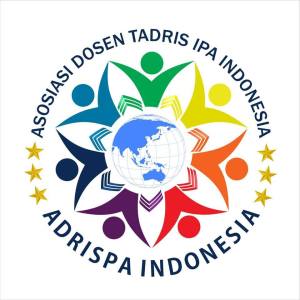THE IMPLEMENTATION OF PROBLEM BASED LEARNING MODEL WITH STEM (SCIENCE, TECHNOLOGY, ENGINEERING, MATHEMATICS) APPROACH TO TRAIN STUDENTS’ SCIENCE PROCESS SKILLS OF XI GRADERS ON CHEMICAL EQUILIBRIUM TOPIC
DOI:
https://doi.org/10.21154/insecta.v1i2.2496Keywords:
PBL Model, STEM, Science Process Skills, Chemical equilibriumAbstract
This study aims to determine the improvement of learning outcomes and students’ science process skills by implementation PBL (Problem Based Learning) model with STEM (Science, Technology, Engineering, Mathematics) based on chemical equilibrium topic. The method in this research is quantitative descriptive with One-Group Pretest-Postest design. The subjects of this study were students of Mathematics and Natural Sciences XI graders in State Senior High School 1 Pulung, Ponorogo Regency. Data method is; observation, questionnaires, and tests. Technical data analysis used is; analysis of study results data, analysis of observations of learning implementation, analysis of student activities, analysis of learning outcomes completeness, and analysis of student responses. The results in this study were: (1) the mean percentage of the implementation of PBL model based on STEM in the chemical equilibrium topic was 89.26%; (2) the category of improvement for all indicators of Science Process Skills observing and conclusion that respectively 0.82 and 0.89 are included in the high category, for the skills to formulate problems, formulate hypotheses, determine variables, and analyze data respectively of 0.64 ; 0.42; 0.67; 0.68 and can be categorized as moderate; (3) the learning outcomes of students in the realm of knowledge have increased classically with n-gain of 0.62 in the moderate category; and the last (4) learning by implementation the STEM-based PBL model on chemical equilibrium material received a positive response from students based on the results of the questionnaire, the percentage was 83%.
References
Abuddin, Nata. (2011). Prespektif Islam Tentang Strategi Pembelajaran. Jakarta: Kencana Agung.
Allen, J. (2012). Practical Assement, Research & Evaluation. University of Kansas
Amnie, Erlida, Abbdurahman, Ertiko, Chandra. 2014. Pengaruh Keterampilan Proses Sains Terhadap Penguasaan Konsep Siswa Pada Ranah Kognitif. Lampung: Universitas Lampung.
Chang, R. (2008). Kimia Dasar Jilid 2. Jakarta: Erlangga.
Corlu, (2014). Introducing STEM education: Implications for educating oue teacher in the age of innovation. Education and Science. Texas A&M University.
Glazer, E. (2001). Problem Based Iinstruction. In M. Orey (Ed), Emerging perspective on learning, teaching, and technology.
Kemendikbud. 2003. Undang-Undang Nomor 20 Tahun 2003 tentang Sistem Pendidikan Nasional. Jakarta: Kemendikbud.
Depdiknas. (2008). DEPDIKNAS. In Panduan Pengembangan Bahan Ajar (pp. 14”“15).
Kemendikbud. (2016). Permendikbud 24 tahun 2016. Jakarta, 2025, 5.
Ma, V. J., & Ma, X. (2014). A Comparative analysis of the relationship between learning styles and Mathematics performance. International Journal of STEM Education, 1(3), 1-13.
Nafiah, Yunin Nurun. (2014). Penerapan Model Problem-Based Learning untuk meningkatkan keterampilan berpikir kritis dan hasil belajar siswa. Yogyakarta: Universitas Negeri Yogyakarta.
Ngalimun. (2013). Strategi dan Model Pembelajaran. Yogyakarta: Aswaja Pressindo.
Ozgelen, S. (2012). Scientist science process skills within a cognitive domain framework. Journal of Mathematics, Science $ Technology Education.
Riduwan. (2015). Skala Pengukuran Variabel-Variabel Penelitian. Bandung: Alfabeta.
Qomariyah. 2014. Kesiapan Guru Dalam Menghadapi Implementasi Kurikulum 2013. Jurnal Pendidikan Ekonomi IKIP Veteran Semarang.Vol. 2 No. 1, November 2014
R. W. Bybee. 2011. Scientific and Engineering Practices in K-12 Classrooms: Understanding A Framework for K-12 Science Education, NSTA press; Arlington, Virginia.
Sudjana, Nana. (2008). Penelaian Hasil Belajar Proses Mengajar. Bandung: Remaja rosdakarya
Suprijono, A. (2009). Cooperative Learning Teori dan Aplikasi PAIKEM. Yogyakarta: Pustaka Pelajar. dengan FKIP UNS
Syukri, H., Halim, L., Meerah, T.S.M. (2013). Pendidikan STEM dalam Enterpeneurial Science Thingking “ESciT”: Satu Perkongsian Pengalaman dari UKM untuk Aceh. Aceh Development International Confefence 2013
Tawil, Muh dan Lilisari (2014). Keterampilan-Keterampilan Sains dan Implementasinya dalam Pembelajaran IPA. Makasar: Badan Penerbit UNM
Trianto. (2007). Model-Model Pembelajaran Inovatif Berorientasi Konstruktivistik. Jakarta: Prestasi Pustaka.
Utami, I. S., Septiyanto, R. F., Wibowo, F. C., & Suryana, A. (2017). Pengembangan STEM-A (Science, Technology, Engineering, Mathematics and Animation) berbasis Kearifan Lokal dalam Pembelajaran Fisika. Jurnal Ilmiah Pendidikan Fisika Al-BiRuNi, 67-73.








